Book title: Songs of Almajiri; An Anthology of Poems on Almajirci
Editors: Saka Aliyu and Ismaila Bala
Publisher: Grethworth Consult, llorin , Nigeria.
Year of Publication: 2021
ISBN: 978-978-991-098-4
Pages: 94 pages.
Reviewer: Ralia Maijama’a Abdullahi, PhD
Reading this collection is like going through an emotional wringer – you emerge from it feeling dirtier, filthier, and more disgusting than the Almajiri. We think they are dirty, they are hungry, they are diseased; but they are not – we are. We are dirty, we are filthy; we are not diseased, we are a disease for we did this to them. They are from us, they are of us, they are us. Yet we have created and sustained an enabling environment for the abuse, neglect and exploitation of the boy-child, our son! This collection says: whatever ugliness we see in him is a reflection of our own ugliness. The anthology blows apart the Northern Nigerian myth surrounding the birth of numerous children when one scarce has the resources to care for them.
Songs of Almajiri sounds a serious warning as to what we should expect to reap from the deadly poison we have sown. Salma Aliyu Umar’s “The Abandoned Soul” (p.1) depicts the chilling evil that is nurtured in the abandoned and neglected soul of the Almajiri, calling to mind the undead hordes of the zombie apocalypse. These “aimless souls” who “run around with reddened eyes, downcast and lost” will grow up with “hate” in their hearts, banding together in a force that knows no mercy for it was shown none. The Almajiri, that child of promise, sent away to foreign lands to learn the Noble Qur’an and nourish his soul on knowledge, spirituality and humility, emerges from the system with more vices than learning. “It hurts me so much!” the speaker in Khatim Adam Shuaib’s poem of that title (p.30) laments, that “You hardly get ten percent/ Of Malam’s students” as “Memorizers of the Holy Book”. As for the rest, “both the Qur’an and [their] personality [are] lost”.
It does not require any significant stretch of the imagination to envisage the psychological and emotional state of the Almajiri – having been betrayed by those he trusted the most, his parents. Mohammed S. Shehu’s “Memo from Almajiri” (p.47) is a moving portrait of the life of almajirci seen through the eyes of an almajiri persona who laments before Allah on his fate.
He refuses to accept that it is Allah that decreed he should beg and starve, and points the accusing finger at “relatives, neighbours and friends” who “abandoned” him “In the wilderness of strange terrain/ With nowhere to go to, no one to lean on”. This is also the theme of Aminu Mustapha Yandaki’s poem, “Almajirci” (p.20), where the “young pathetic Almajiri” harbours a heart that is “broken into pieces with cheating/ finding it difficult to trust/ for those he trusted hurt him the most.” His mind, which should be inquisitive and alive with the excitement of discovery, drowns in thoughts as to “whether his parents love him or not”. Yet the speaker is quick to dissuade us from blaming the system; rather, the speaker urges us to “condemn…/ …the mother and father/ that willingly send their child on a mission to read/ with no provision for his daily bread”; and to condemn “the imam that fails to reject parental irresponsibility”. “Chased and shut out/ From the loins from which [he] came forth”, the almajiri is exiled “Into the abysmal darkness of uncertainty/Without a destination in mind”, as the speaker in Ahundu Michael Orkuma’s poem titled “Wandering Scholar” (50) laments.
Brutalised and dehumanised, these poor souls wander the streets with a warped sense of reality, aptly captured in Sakky Jojo’s “Unsung Song of Almajiri” (p.17), where the Almajiri ask not who but “what” is their parents – because they know who their parents are, they just do not know “what” parenting means or looks like. They do not know “what” a parent is that keeps its children close, “what” a parent is that takes care of its children, provides for them and protects them. This kind of parent is not a person for the almajiri; not a “who” but a “what”, for such a parent is a wonder, a marvel, a phenomenon that has been placed beyond reach of the almajiris’ understanding and simple faculties. As the “Malam” in Ali Abdallah’s “Untitled” (p.77) puts it to his almajiri student, “…you are the son of distance,/ a not so familiar face that/ brought you here to study/ provisionless”.

In Systems Philosophy, the arguments over the rightness of any system are set aside because of the impossibility in practice of gaining objective agreement about the nature of reality. Focus therefore shifts to the processes involved in making judgments in practical situations. As such, our focus should shift away from the system to the attitudes, judgments and practices that determine what the system becomes. Founded in 1972 by Ervin Laszlo, this branch of philosophy has “systems axiology” as one of its main areas and which is concerned with developing models of systems that involve humanistic concerns. Systems philosophy regards the whole world as a great organization in the sense that everything is connected and the world has an underlying unity. “…I am same as you, just on my own”, proclaims the Almajiri in Usman Masallaci’s “I Am Almajiri” (57). We therefore only delude ourselves when we think that the Almajiri problem is not connected to each and every one of us. For, “What makes a nation great?” asks the speaker in Francis Annagu’s “Give me the Natal Seat” (2) when “weasels have/ eaten the national flag and/ by the Almajiri’s cry/ the ultimate prize is war”. What patriotism could one expect of a person whose own country “hacked his legs”? Clearly, the Almajiri is a hindrance to the nation’s progress.
Interestingly, Nigeria is a signatory to all the international instruments on human rights and the welfare of the child has been passed into law under the Child Rights Act of 2003, a Law so detailed it spans 265 pages and proclaims as its chief concern: “to provide and protect the rights of a Nigerian child; and other related matters.” The very first statement under part one reads: “Best interest of a Child to be of paramount consideration in all actions”; while the second statement is: “A child to be given protection and care necessary for his well-being”. Sub section (2) of that reads: “Every person, institution, service, agency, organization and body responsible for the care and protection of children shall conform with the standards established by the appropriate authorities, particularly in the areas of safety, health, welfare, number and suitability of their staff and competent supervision.” Let’s break it down shall we. Is the almajiri safe? No. Is he in the best of health? No. Is his welfare given due diligence? No. Are his caregivers of adequate number, and suited to the task? No. Is he under competent supervision? No. So the question now remains: Is anyone being arrested for the crimes against the almajiri; is anyone called to account for breaking this law? Again, no! Nigeria has failed the boy-child.
In South Africa, parents of vulnerable children can access a monthly child care grant. That government had less than 800 street children roaming its streets in 2000, but, for South Africa, that was a significant enough number to warrant a Comprehensive Street level research that enabled a whole new approach to handling the problem to be developed. The emphasis was placed on rehabilitating these children through education and health, eventually stabilizing and developing them away from street life. For this reason, and because of such commitment, the numbers of street children in South Africa has been reduced by 90%. This is not to deny that there are other countries with the same problem of street children – India, Bangladesh, Sierra Leone and Kenya are a few examples – but to note that when a government is committed to its child welfare Acts, it can address the problem of street children effectively.

The diverse backgrounds of the poets is a sign that the almajiri is not a sectional problem, it is not a problem of Arewa alone; it is a national problem. The editors of this anthology, Saka Aliyu and Ismail Bala must be commended for bringing together poets who come from different geographical, ethnic, cultural and religious backgrounds. This is exemplary and is a sign of their commitment to excellence and to the cause of the almajiri. The importance of the almajiri conversation cannot be overemphasized. It is noteworthy that these obviously dissimilar poets are united in their empathy and sympathy for the almajiri. The anthology gives voice to their disgust towards and rejection of a system that makes a mockery of any nation’s most valuable asset – its future. As things stand in Nigeria, hardly anyone is doing anything and these children continue on in their deprived lives.
Not only are these zombie children dehumanized, they’ve become objectified in the worst ways possible. When we see them, we do not see a boy, we see a tool which we could use for any task, menial or otherwise. Is it any wonder that Sadiq Aliyu Waziri’s “Dan Malam” (14) asks “Am I malam’s bowl?/…[or] father’s hoe?. This calls to mind the way that the almajiri is exploited as labour. The almajiri goes home only to till the land for his father but is sent back before he could witness, much less enjoy the fruits of his labour. His father’s silos grow full through his efforts, yet his own little silo, his belly, goes empty and hungry away, back to Malam. Forced to feed himself even though he is under Malam’s tutelage, he has become nothing more than a bottomless bowl of hunger, never satiated, never full. As we see in the heartbreaking poem “Zaafi” (15) by James Eneojile the almajiri cry:
Our bowls have never known plenty
The key word has always been survival
Our mats we leave to beg, that we may live
Their little bodies are so used to beatings that they “no longer cry against [the] rhythms” of the “whips [which] have married [their] bodies”. The woman on the corner who chases them away, like us, “only sees misfits in a perfect world”; and why shouldn’t she, when these boys have lost “the cuddle” of their own mothers?
Several motifs run through this anthology. One is the motif of the mother, seen in the poems of Hamisu Shehu, James Eneojile, Tijjani Abdullahi Aderemi, Hauwa El-Yakub, Aminu Mustapha Yandaki, Firdausi Kabir, Philip Peter Akoje, and Olushola O. Omogbehin, the title of whose poem “The Shameless Mother” sums up the sentiment against the person of the mother in this collection. Several of these poems wonder how a mother could abandon her child to alien streets. Others force us to picture the anguish and yearning of a child who misses his mother and is denied the warmth of her embrace. This separation of the almajiri from his parents is arguably the most painful tragedy of the almajiri.
Another motif is the bowl. This motif informs one of the interesting aspects of the anthology: that it focuses more on an aspect that is not central to the original meaning of Almajici – begging. Originally the almajiri was a young migrant in search of knowledge; almajirci was therefore a most noble pursuit. The dirt, filth, rags and disease associated with the almajiri was non-existent then. These budding scholars were respected wherever they went, and people considered it an honour and a blessing to serve them food and other things that any traveler might be in want of. The picture on the cover of the anthology could be said to have done justice to the almajiri of those earlier times, but not to the almajiri of today. Today we associate the almajiri more with the bowl than with the slate. Indeed the anthology is replete with mentions of the bowl and the metaphors associated with it; and hardly any mention of the word “slate” at all. This is a sad pointer to what the almajiri represents to us today – hunger, want, deprivation, lack and need.
I would have loved to speak about the beauty of the poems, the artistic verve of the poets, the imagery and symbolism that weave through these poems. I would have loved to give space to the rhyme and rhythm, the musicality of these poems, the tribute that they pay to the aesthetic senses; but their subject is too somber a one for that. Today is not the day for speaking of beauty. Today is a day for facing the ugly truth that we turn our heads away from, ignore or pretend not to see. This collection, in all its beautiful rendition, is a forceful and force-filled putting out there of our most ugly face – the abuse of our children, our boy-child. That something so ugly as the almajirci of today could be couched in that most beautiful of languages – the language of poetry – is a powerful symbolism for the fact that the “ugly”, “unpleasant looking” and “smelly” little urchins on the streets are capable of, and do indeed carry within themselves a beauty which most of us have lost, the beauty of PROMISE! For theirs is the future. However, what that promise fulfils might well be determined by our actions today.
I conclude on this note. The beauty of the almajiri is the beauty of song – it tugs at your heart. The beauty of the almajiri is the beauty of poetry – for does not poetry call to you and hold you to itself, yearning for your understanding; does not poetry seek to resonate with you, grip you in its diction, sway you with its rhythm, carry you along the beats of its metre, plucking your heartstrings all the while? Poetry is almajiri for it, too, begs of you for love, admiration, understanding, approval. It demands the greatest care and diligence of its reader. Anybody who knows the value of a child knows that the child also demands the same things. Yet we cherish poetry. We do not cherish the almajiri. But, as the speaker in Olushola O. Omogbhin’s “No Longer Alms” (64) warns ominously, “Surely God is watching/…[and]…God is angry”. We ignore the almajiri at our own peril.
About the Author:
Dr Ralia Maijama’a is lecturer in the Department of English and Literary Studies at Bayero University, Kano. She is a 2021 Fellow of American Historical Program (AHP) for African scholars.
During the fellowship she will be working on the research titled ‘Feminism, Female Sexuality and Personal Choice: Subverting Patriarchy in Northern Nigerian Women’s Writing.’
- CALL FOR SUBMISSION: Dear Yusef: Essays, Letters, and Poems For and About One Mr. Komunyakaa - May 25, 2022
- #SubmitNow: Awaiting Revolution Poetry/Essay Anthology - May 21, 2022
- The Straight Path | Adamu Yahuza Abdullah - May 20, 2022






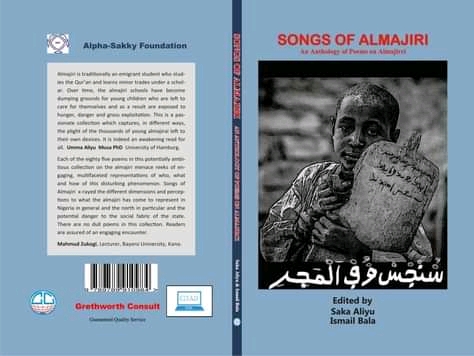
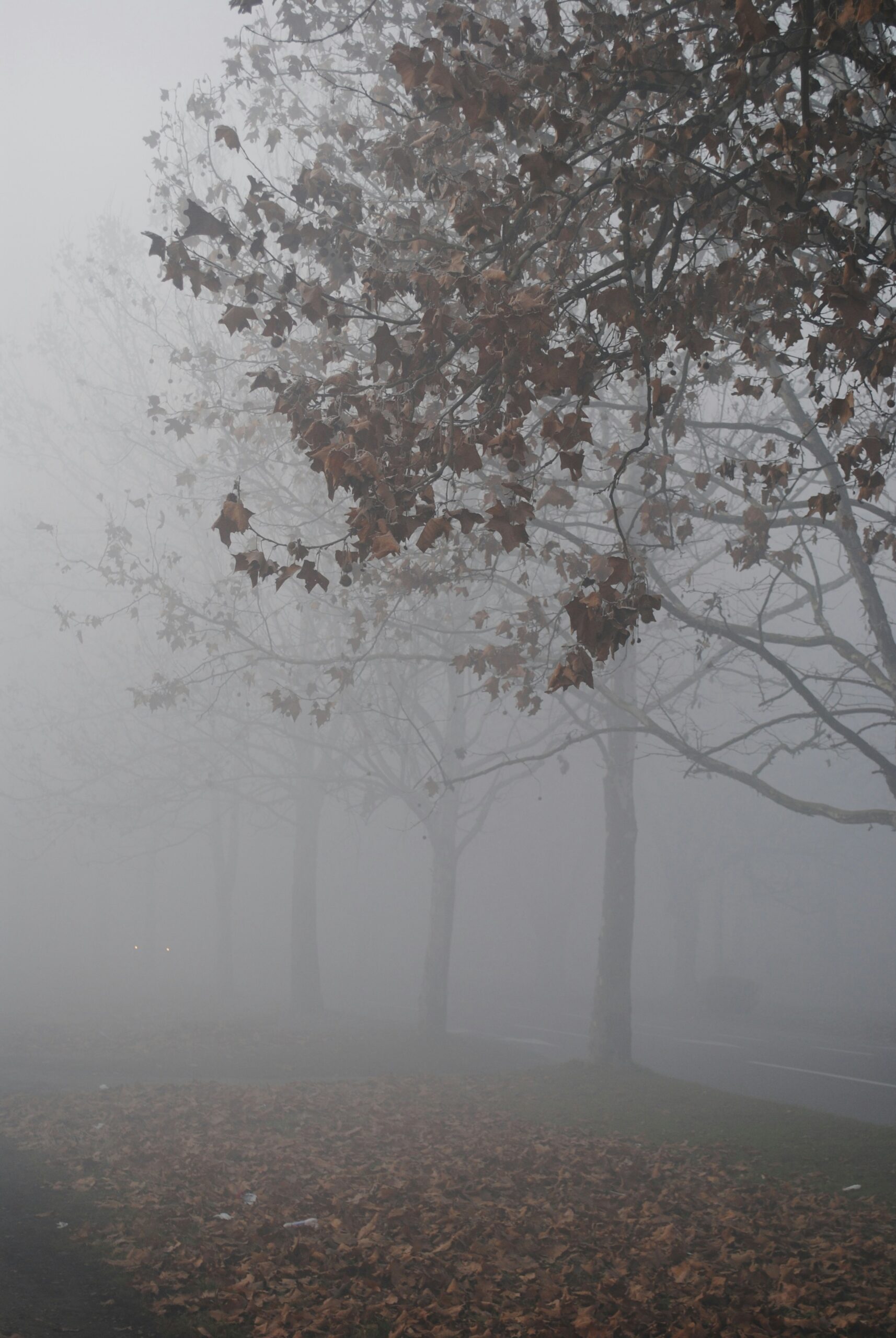
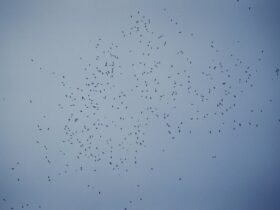
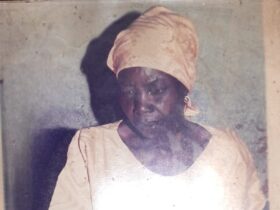

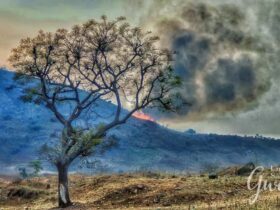

Leave a Reply